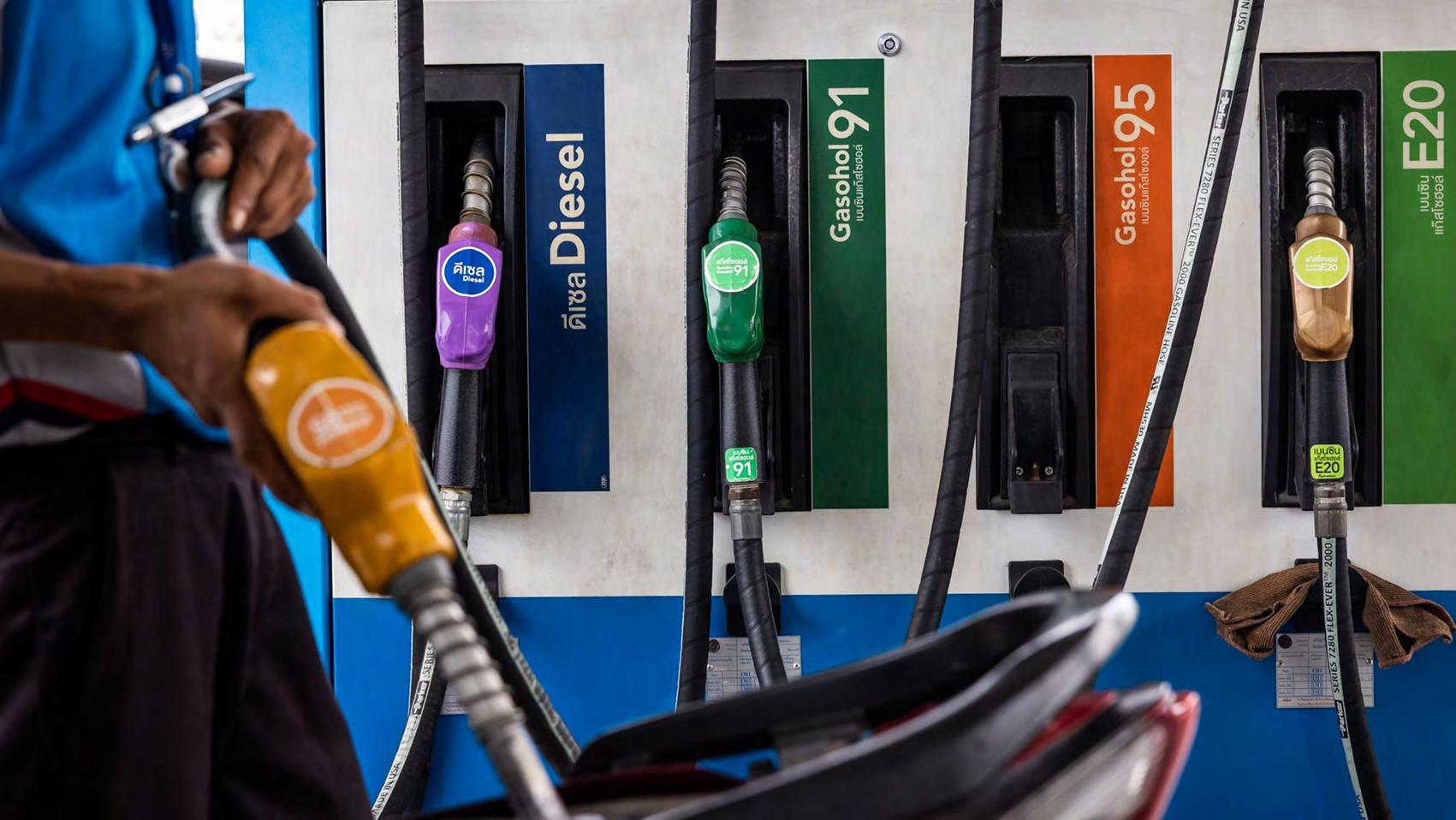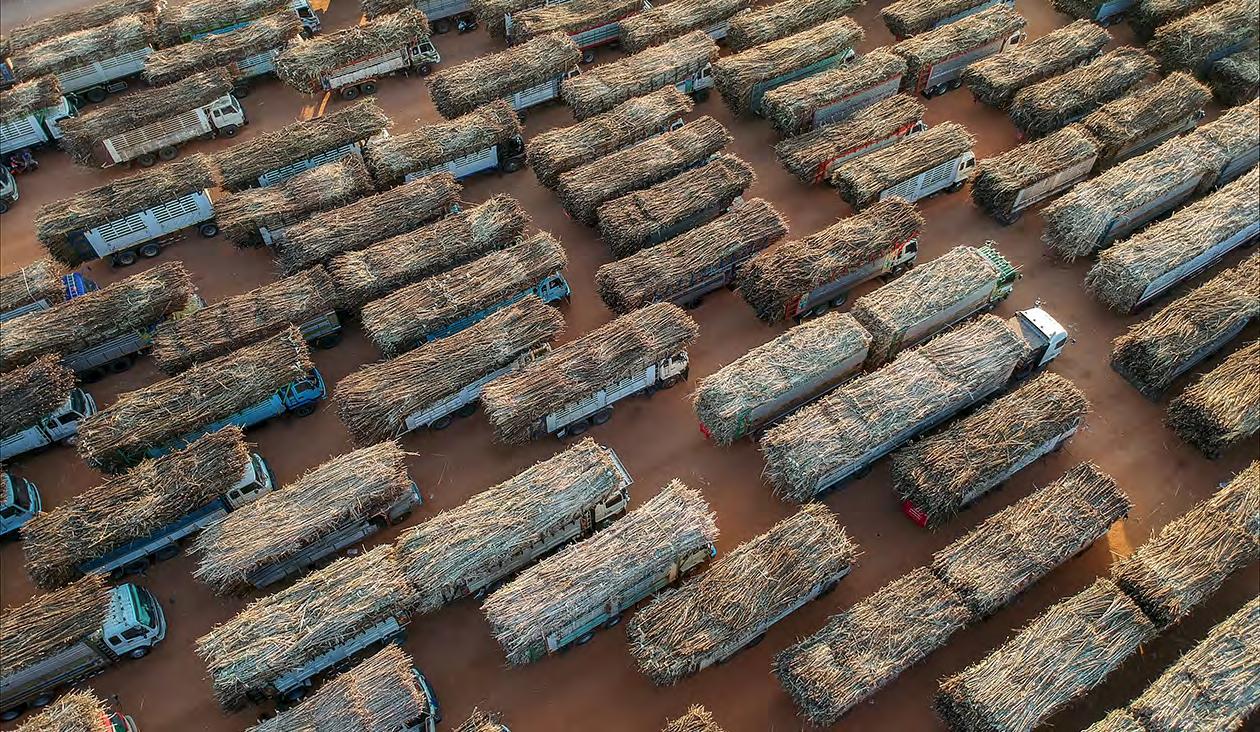
5 minute read
Biofuel producers seek alternatives
Thomas Hundt
Demand for biodiesel and bioethanol will decline in Thailand in the medium term. In fact, producers are already looking at new alternatives.
Advertisement
Thailand was the world's seventh largest producer of biofuels in 2021. Converted into oil equivalents, it produced an average of about 40,000 barrels per day. Producers have increased their output fourfold since 2008.
The production volume would actually have to be doubled to 7.5 million litres of ethanol and 8 million litres of biodiesel per day, according to a 2018 national alternative energy plan. Domestic production covers the demand; Imports and exports do not play a role.
SUCCESS STORY COMING TO AN END SOON?
The Ministry of Energy is drawing up new plans for alternative energies and assumes that less biofuels will be needed in the medium term. Sales of fuels for combustion vehicles could peak in 2027. Electric vehicles will also displace combustion vehicles in Thailand, experts say.
The Government has a target of 30 per cent of vehicles produced in Thailand being emission-free by 2030. It wants to reduce carbon dioxide emissions and make the country the production centre for electric vehicles in the region.
However, it is a long way to achieving a zero-emission vehicle fleet. At the end of 2022, 43.4 million motor vehicles were registered, of which only 32,081 were fully electric models.
About two thirds of bioethanol is produced from molasses, a by-product of sugar production, and the rest from manioc. According to the Ministry of Energy, by the end of 2022, 27 bioethanol plants had a total capacity of 6.57 million litres per day (table 2).
A government committee adjusts the blending rates of bioethanol and petrol, taking into account the supply of the two raw materials. In 2024, blends with 10 per cent ethanol (E10) and 85 per cent (E85) are to be phased out, and only E20 petrol will remain. Bioethanol sales volumes are expected to decline with the termination of E85.
BIOPLASTICS AS AN ALTERNATIVE
Some manufacturers now want to invest in new processes such as the production of bioplastics. For example, SCG Chemicals of Thailand and Braskem of Brazil, among the world's largest producers of biopolymers, are looking into investing in a bioethanol dehydration plant in Thailand to produce bioethylene and bio-based polyethylene.
PALM OIL FUELS BIODIESEL
Thailand has been producing biodiesel for blending into standard diesel since 2007. The manufacturers use palm oil as a raw material. About half of the palm oil harvest goes into the production of biodiesel.
The blending started at 2 per cent (B2) and was increased to 5 per cent in 2012 and 7 per cent in 2014. The Ministry of Energy introduced a 10 per cent blend (B10) and a 20 per cent variant (B20) for commercial vehicles in 2019.
The Government changes the blending ratios as needed to adjust biodiesel production to the available quantity as well as prices of palm oil. Harvest quantities fluctuate considerably, depending on weather conditions. However, B10 biodiesel is to be the only standard in the future.
The 15 producers have expanded their capacity from 8.5 million litres to 10.3 million litres per day (table 3) since 2020, but were operating at less than 40 per cent capacity in 2022. Their biodiesel is consumed entirely domestically. Imports of biodiesel require a permit and do not play a role.
SWITCHING TO SUSTAINABLE AVIATION FUEL
The CO2 emissions of Thai air traffic are to be reduced. A working group of the Ministry of Energy is therefore developing guidelines for the production and sale of sustainable aviation fuel (SAF).
Aircrafts in Thailand consumed approximately 3.3 billion litres of JET A-1 jet fuel in 2022 and sales are expected to return to pre-Covid levels of more than 7 billion litres by 2024 at the lastest.
The international SAF market is also considered promising. The European Commission alone is planning SAF blending for fuel delivered to European Union airports. The minimum SAF shares are to be gradually increased from 2 per cent in 2025 to 63 per cent in 2050.
The International Civil Aviation Organization (ICAO) applies certain sustainability criteria to renewable biomass as feedstock for SAF within the framework of its Carbon Offsetting and Reduction Scheme for International Aviation. Feedstocks that are suitable for the production of foodstuffs should rather not be used. SAF from Thailand must meet these criteria in order to be certified.
The joint stock company Bangchak announced in December 2022 that it wants to produce SAF from used cooking oil. The refiner is setting up a joint venture with biofuel producer BBGI and vegetable oil recycler Thanachok for this purpose. The plant is expected to have a capacity of 1 million litres of SAF per day and start operations by the end of 2024.
Companies in the PTT Group, the national oil and gas group, are also investigating whether they can produce SAF from esters, fatty acids or alcohol. The Thai company, Energie Absolute, wants to convert a plant that produces biodiesel to biofuels for aircraft. The new technology is to be implemented by the Swiss company Sulzer Chemtech.
Contact details:
Thomas Hundt
Director Thailand, Cambodia, Myanmar, Laos
GERMANY TRADE & INVEST
www.gtai.com











